|
|
|
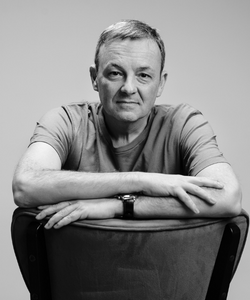 |
José Capmany
Professor of Photonics at the iTEAM Research Institute of the Universitat Politècnica de València (UPV), Spain and entrepreneur
He has over 34 years experience in photonic devices and systems research and technology transfer. With over 500 Scientific publications and 20 patents he is a Fellow of IEEE and OSA. In 2011 he co-founded VLC Photonics (acquired by Hitachi High technologies in 2020) and in 2019 he co-founded iPronics, programmable Photonics. In 2012 He received the King James I Award in Novel Technologies (the highest Scientific Distinction in Spain) for pioneering contributions in RF- Photonics and in 2020 the National Research award in the field of Engineering. In 2021 he received the IEEE Photonics Society Engineering award for his pioneering work on RF and programmable photonics. In 2016, he received a prestigious ERC Advanced Grant to develop programmable integrated photonic systems for RF-Photonic applications and in 2019 an ERC Proof of Concept Grant to bring the concept of programmable integrated photonics close to market. From 2018 to march 2022 he was Editor in Chief of IEEE Journal of Selected Topics in Quantum Electronics and is a member of the steering Committee of the European Conference on Optical Communications (ECOC).
|
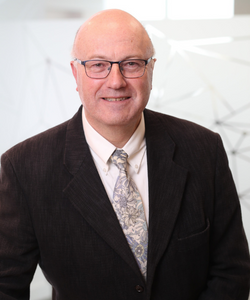 |
Mark Ferguson
Chairman of the European Innovation Council Board
Mark is Chairman of the European Innovation Council (EIC) Board. He was Director General of Science Foundation Ireland and Chief Scientific Adviser to the Government of Ireland. He was co founder and CEO of the Biotechnology company Renovo developing novel pharmaceuticals to prevent scarring and accelerate healing, based on patented discoveries from his University research laboratory. He built the company from 2 to 200 employees, raised £32M in private equity, floated on the LSE raising £62.5M on IPO and licensed the lead drug in a US$825M deal. Following a negative phase 3 trial ,he restructured the company to become Inspired Capital plc ,which was subsequently sold to the Tavistock Group. Previously Professor and Dean of Biological Sciences at The University of Manchester, Mark is the recipient of numerous international research prizes and awards including the 2002 European Science Prize ( jointly ),author of 329 papers and book chapters,61 patent families , author/editor of 8 books and supervised 77 Phd students with key discoveries of the molecular and cellular basis of scarring and temperature dependent sex determination in alligators. He has served on numerous international committees on research and innovation including Chair of the EIC pilot Advisory Board.
|
|
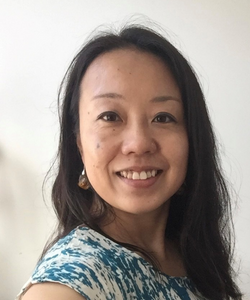
|
Tomomi Fushiya
Associate Professor at Polish Centre of Mediterranean Archaeology, University of Warsaw
Tomomi Fushiya is an archaeologist, specialised in heritage and collaborative archaeology in Sudan, Egypt, and Cyprus. She was born in Japan and completed her degrees in Waseda Univeristy (Japan), UCL (UK) and Leiden Univeristy (the Netherlands). Her research focuses on values and meanings of archaeological heritage in contemporary society, and ethical practice of archaeology abroad. She also has a wide range of experience in heritage management planning, community engagement programme design, participatory research with communities living around archaeological sites. She is responsible of collaborative archaeological work at Polish Centre of Mediterranena Archaeology, University of Warsaw, and leads Dialogue community project in Sudan and project on archaeology, migrants and emotive in Cyprus.
|
|
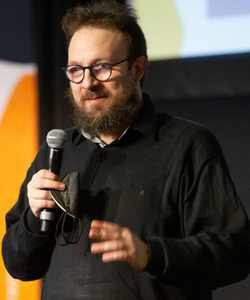
|
Gian Maria Greco
Senior Research Fellow at the University of Macerata
Gian Maria Greco is Board Member of the Marie Curie Alumni Association (MCAA) and Senior Research Fellow at the University of Macerata. He specialises in theoretical and applied issues in accessible communication, human rights, and diversity, equity, inclusion & belonging (DEIB). He was Marie Skłodowska-Curie Fellow (Autonomous University of Barcelona) and held positions at several universities, including University of Oxford, University of Warsaw, Roehampton University, University of Bologna. Former president and current coordinator of the Media Accessibility Platform, he has participated in several European projects, and contributed to international and national policies on accessible communication. He complements his research expertise with an extensive experience as a consultant for institutions and organisations. In the MCAA, he has been working mainly on science communication and DEIB. Former Vice-Chair of the Communication Working Group, he has been Editor-in-Chief of the MCAA publications for the past four years and coordinates the recently launched MCAA Book Publishing. He also co-leads the ResearchAbility Initiative, the MCAA programme for researchers with disabilities.
|
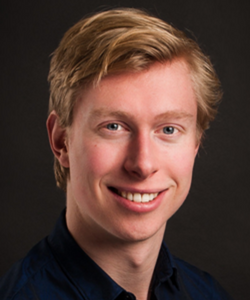 |
Tim Houter
Professor at the Delft University of Technology and co-founder of Hardt Hyperloop
Tim is one of the four co-founders of Hardt Hyperloop. Hardt is a European Hyperloop technology company that has realized Europe’s first hyperloop test facility, has proven essential hyperloop technologies, and is now collaboratively developing the European Hyperloop Center. Tim has a background in mechanical engineering at the Delft University of Technology, where he built record-breaking electric race cars among other things. Prior to Hardt, Tim was the team captain of the Delft Hyperloop team, which won Elon Musk's hyperloop competition. It is Tim's passion to work with an amazing team with loads of ambition to do the extraordinary.
|
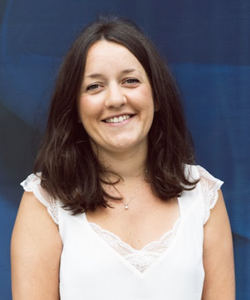 |
Aurélie Lacroix
Senior scientist at Sixfold Bioscience
Aurélie recently started a senior scientist position at Sixfold Bioscience, after completing her postdoctoral Marie Skłodowska-Curie fellowship with the UK-based start-up. There, she helps to develop RNA-based structures for the delivery of gene therapies. Prior to joining Sixfold, Aurélie completed her PhD in Chemistry at McGill University (Montréal, Canada) with Prof. Hanadi Sleiman. She also holds a MSc in Chemistry and a MRes in medicinal biochemistry from the National Graduate School of Montpellier (France). Finally, Aurélie loves discussing science with the general public. She completed a one-year journalism/science communication degree in 2019 (Laval University), with the support of the Chu Family Foundation women award (IS3NA), to strengthen her skills for science outreach. Notably, she took part of the 3 min thesis competition, volunteered for Pint of Science Canada, or recently competed as the MSCA finalist for Falling Walls 2020.
|
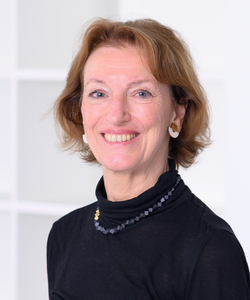 |
Maria Leptin
President of the European Research Council (took office from 1 November 2021)
Prior to that, Professor Leptin served as Director of EMBO from 2010-2021. She also established a research group in Heidelberg at the European Molecular Biology Laboratory (EMBL). The group studies the mechanics of shape determination during development. After completing her studies in mathematics and biology at the University of Bonn and the University of Heidelberg, Professor Leptin worked for her PhD at the Basel Institute for Immunology, Switzerland (1979-1983) studying B-lymphocyte activation under the supervision of Fritz Melchers. In 1984 she moved, as a post-doctoral fellow (1984-1987) to the Laboratory of Molecular Biology (LMB), Cambridge, UK, where she started her research on the embryonic development of Drosophila, joining the laboratory of Michael Wilcox. This work laid the foundations for her future work in the field of molecular morphogenesis. In 1988, she was appointed as staff scientist at the same institution. As visiting scientists in Pat O’Farrell's lab at the University of California, San Francisco (UCSF) she began her work on gastrulation which became the core of her research interests at the Max Planck Institute for Developmental Biology in Tübingen, Germany, where she worked as group leader (1989-1994). In 1994, Maria Leptin became Professor at the Institute of Genetics, University of Cologne, Germany, where she still leads a research group. She spent sabbaticals as a visiting Professor at the École Normale Supérieure, Paris, France (2001) and as visiting scientist at the Wellcome Trust Sanger Institute, Hinxton, UK (2004-2005). Professor Leptin is an elected member of EMBO, the Academia Europaea and the German National Academy of Sciences (Leopoldina), and an Honorary Fellow of the Academy of Medical Sciences. She is also Foreign Member of the Royal Society since May 2022.
|
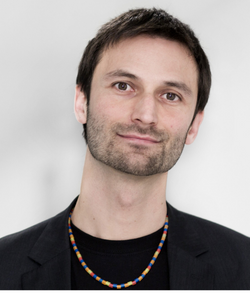 |
Jacob Sherson
Professor at the departments of Physics and Management at Aarhus University
Jacob Sherson holds professorships at the departments of Physics and Management at Aarhus University, Denmark. He is the Founder and Director of the Center for Hybrid Intelligence and the game-based citizen science platform ScienceAtHome with more than 300,000 contributors. He explores human and algorithmic problem solving through the lens of machine optimization and cognitive/social science and investigates large-scale game-based assessment of both basic cognitive skills and 21st century skills like creativity. In his Games4Good division, he explores games to enhance public participation in pressing social dilemmas such as the CoronaMinister game crowdsourcing solutions for corona containment initiatives and crea.visions launched with the UN organization AI4Good and the Danish Public Climate Summit to allow AI-enhanced generation of future scenarios. Jacob is a scientific advisor to public and private institutions on AI and quantum technologies. He was a TedX speaker (+245k views) and won the 2020 Falling Walls in Science and Innovation Management, 2019 Bold Award on Boldest AI + Boldest Scientific Project, 2018 Grundfos Prize and 2017 Ministerial Research Communication Prize.
|
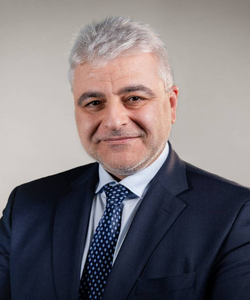
|
Nektarios Tavernarakis
Chairman of the Board of Directors at the Foundation for Research and Technology-Hellas (FORTH), Research Director at the Institute of Molecular Biology and Biotechnology (IMBB), and Professor of Molecular Systems Biology at the Medical School of the University of Crete, in Heraklion, Greece.
He is the Director of the Graduate Programme on BioInformatics at the Medical School of the University of Crete, and heads the Neurogenetics and Ageing laboratory of IMBB. He is an elected corresponding member of the Academy of Athens, and an elected member of the Scientific Council of the European Research Council (ERC), the European Molecular Biology Organization (EMBO), the German National Academy of Sciences (Leopoldina), the European Academy of Sciences and Arts, and Academia Europaea. He gained his PhD at the University of Crete, and trained as a postdoctoral researcher at Rutgers University in New Jersey, USA. For his scientific accomplishments, he has received several notable scientific prizes and received a number of awards, including two ERC Advanced Investigator Grants, and an innovation-supporting ERC Proof of Concept Grant. He is one of the first in Europe, and the first in Greece, to have been awarded this highly competitive and prestigious grant twice.
|
|
|
|










